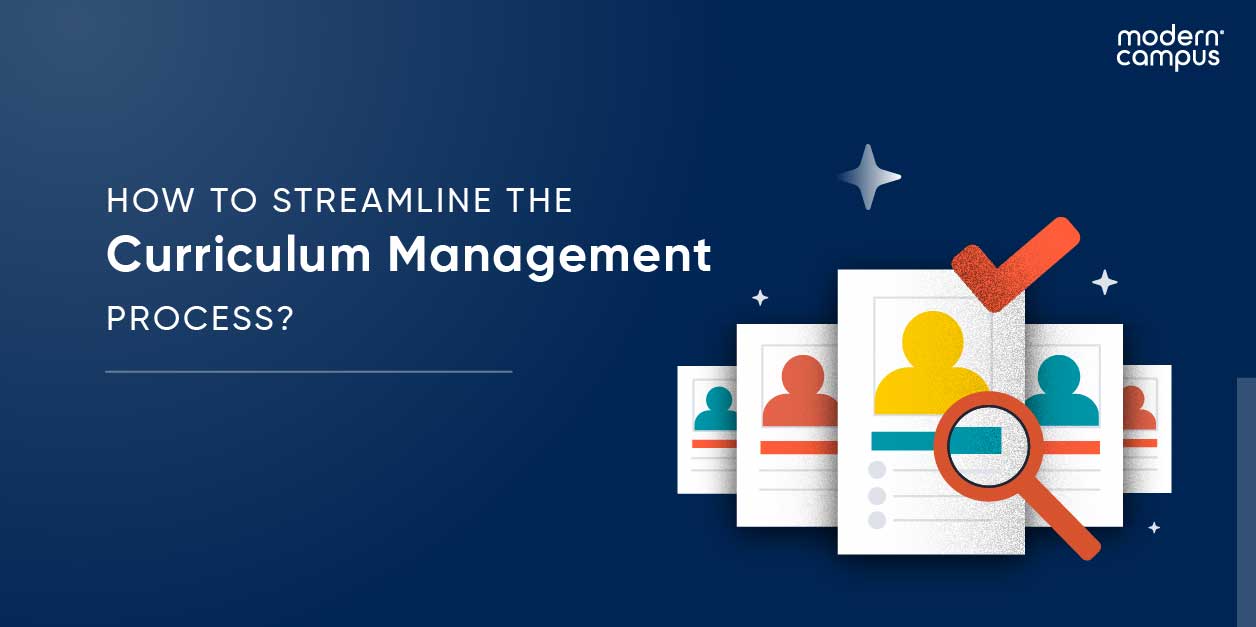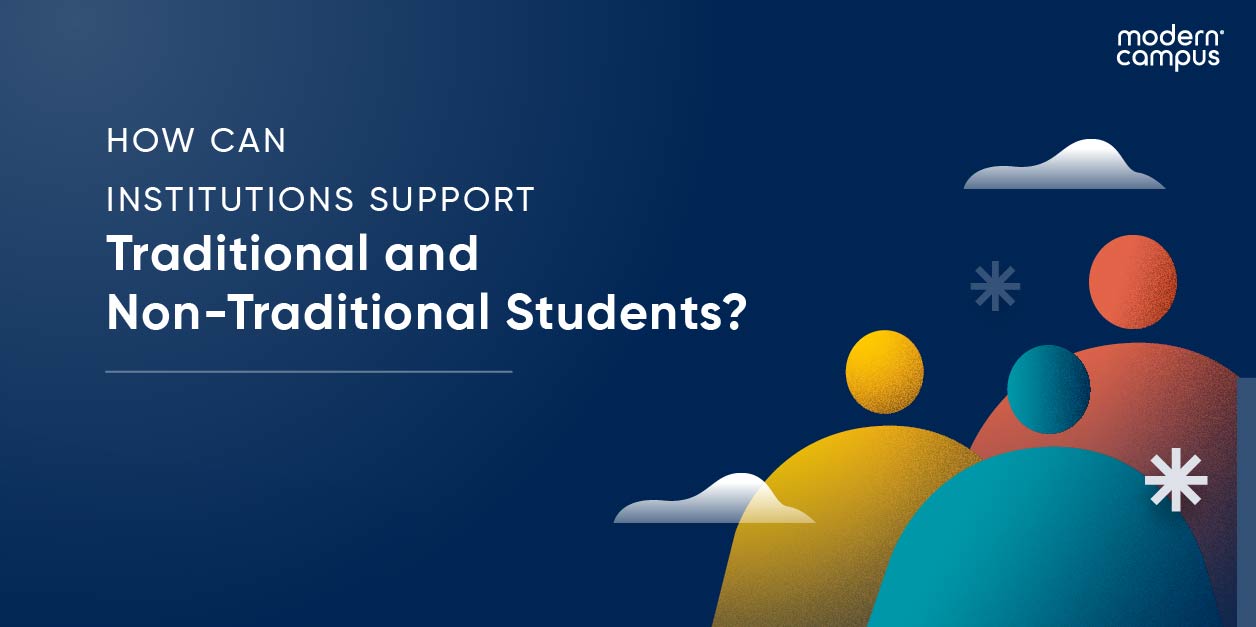Streamlining Curriculum Management in Higher Education
The curriculum influences every aspect of an educational institution – from program creation to validation, delivery, resource allocation, and publication. Efficient Curriculum Management (CM) is essential for higher education institutions to provide a great student experience.
The curriculum is a mix of things, including educational objectives, academic planning, course mapping, assessment strategies, teaching methods, and learning objectives. These make managing curricula a complex task.
Using curriculum mapping software is an effective way to simplify this complicated process.
But before delving into the curriculum management process, let’s look at the role of key stakeholders.
The Role of Key Stakeholders
Students
Students experience the learning outcomes, methods, and assessment of curricula. They provide feedback on the strengths and weaknesses of current and proposed plans.
Students can also co-create curricula by sharing their preferences, needs, interests, and aspirations with instructors and other stakeholders. Since student engagement is key to a successful curriculum, student input is highly valuable.
Educators
Educators are the main agents and facilitators of curriculum innovation. They design, deliver, and evaluate the proposed curricula in their courses and programs. Their experience helps develop a curriculum that prioritizes student-centered learning.
Educators collaborate with other educators and stakeholders to ensure curriculum alignment across disciplines and levels.
Academic administrators
Administrators provide the vision, direction, and resources for curricula in their institutions and departments. Therefore, they play a significant role in communicating the rationale, goals, and benefits of curriculum innovation to all stakeholders.
They create a conducive environment and structure for curriculum design, syllabus development, course implementation, and program evaluation. As curriculum leaders, they support curriculum management by establishing and empowering teams, committees, and units.
Policymakers
Policymakers set the curricula' guidelines, standards, and incentives to ensure education's quality and relevance. They consult with various stakeholders, especially students and educators, to understand their expectations and thoughts on the curriculum.
Policymakers play a vital role in influencing, regulating, and promoting curriculum innovation within any higher ed institution. They regulate curriculum management by funding, accrediting, and recognizing the curriculum management process and efforts.
Industry partners
Industry partners participate in higher education academic planning by collaborating with academic institutions to ensure curriculum alignment with real-world industry needs. They provide valuable insights into current trends, technological advancements, and skill requirements.
By fostering collaborative research projects and addressing real-world challenges, industry partners help develop relevant academic programs. This not only helps students develop in-demand skills; it also establishes a dynamic connection between academia and industry.
Streamlining Curriculum Management
Managing curriculum comes with its own set of challenges and opportunities—from planning and reviewing to collaborating and communicating.
Below are some key stages of the process, common challenges that institutions face at each stage, and how to overcome them to streamline curriculum management.
Course planning
Course planning involves creating a roadmap for what students will learn in a class or program. It involves deciding what topics to cover, how to teach them, and how to assess student learning.
Coordinating schedules, aligning lessons with learning objectives, and keeping everything organized can be challenging. Curriculum management software and tools help automate and effectively manage all these activities. They can also provide a central hub for educators to collaborate, share materials, and track student progress.
Curriculum review
Curriculum review helps colleges and universities ensure the course plan is working well. It involves looking at what is being taught and how, and if it’s meeting the learning goals.
Keeping up with changes in education standards, adapting to new teaching methods, and ensuring that the curriculum stays relevant are some challenges the higher ed institutions often face.
A curriculum management software can assist in tracking changes in educational requirements, making it easier to update the curriculum accordingly. It can also provide tools for collaboration among educators during the review process.
Collaboration and communication
To create a successful curriculum for an institution with multiple departments, it’s essential to ensure that everyone is on the same page.
Collaborating, reviewing, and managing approvals are essential for curriculum management, and meetings are often used to go through these steps. Yet, the time spent in all the meetings required to handle numerous programs and courses can accumulate hundreds of hours.
Leveraging a software solution allows you to benefit from features like comprehensive reporting, collaborative agendas, commenting within proposals, and approval workflows customized for each department's processes. These features make it easier to make edits in real-time and decrease the necessity for frequent in-person meetings.
Data management
Keeping track of all the information related to what students learn and how they learn it helps evaluate and improve the health of the curriculum. It involves collecting, storing, and using data to ensure the curriculum works well.
Information must be added regularly to multiple systems, including the student information system and academic catalog. However, manual data entry into multiple systems takes a lot of effort and time and presents more opportunities for error in the data.
An integrated curriculum management solution can eliminate the need to re-enter data into multiple systems manually. It also ensures the data is always up to date.
Continuous improvement
Curriculum management is not a one-time investment. It involves regularly checking what's working well and what could be improved, then enhancing the educational program.
However, continuous improvement often includes gathering and analyzing data, coordinating changes among educators, and ensuring that improvements align with educational goals.
Curriculum management software can automate data collection and analysis, providing insights into areas that may need attention. Collaboration tools within the software help educators work together to implement improvements. Tracking and measuring the impact of changes allows for evidence-based decision-making, contributing to a more effective and responsive curriculum management process.
Want to streamline your curriculum management process with a leading curriculum management software?
World-class curriculum management software simplifies educational planning by efficiently organizing class schedules, fostering collaboration among educators, and maintaining a systematic record of student data.
Modern Campus Curriculum is a leading curriculum management platform that helps higher education institutions streamline curriculum management. Learn more here.
Last updated: December 18, 2023





